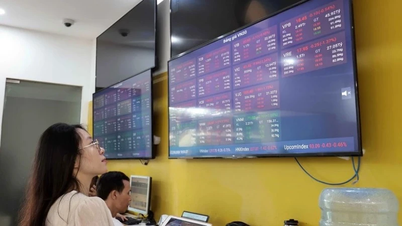The transferee bank is allowed to sell and issue shares of the credit institution receiving the compulsory transfer to foreign investors in accordance with the compulsory transfer plan.
After 10 years since the special control of OceanBank, CB, GPBank, and DongA Bank, the State Bank has completed the mandatory transfer of all four commercial banks to the transferee banks.
When receiving the transfer of a weak bank under special control, the rights and obligations of the receiving banks, such as MB, Vietcombank, VPBank, HDBank, have been specifically regulated in the Law on Credit Institutions (CIs) 2024.
According to Article 179 of the Law on Credit Institutions 2024, the party requesting to receive a compulsory transfer must fully satisfy the following regulations: profitable business operations for at least 2 consecutive years prior to the time of requesting to receive a compulsory transfer or being designated to receive a compulsory transfer; meeting safety ratios; having a feasible compulsory transfer plan.
In case the compulsory transfer plan proposes a special loan plan from the State Bank with an interest rate of 0%/year, without collateral, the State Bank shall submit to the Prime Minister for consideration and decision on the special loan.

Many “incentives” for banks receiving mandatory transfers
Article 185 of the Law on Credit Institutions stipulates the rights and obligations of the mandatory transferee.
Some of those rights and obligations are:
Own 100% of the charter capital of a commercial bank that is compulsorily transferred in case the transferred commercial bank is compulsorily converted into a one-member limited liability bank.
The level of capital contribution and share purchase of the compulsory transferee at the compulsory transferred commercial bank is implemented according to the ratio specified in the approved transfer plan and must exceed the limit on share ownership ratio.
It is not mandatory to consolidate the financial statements of the transferred commercial banks.
Compulsory transfer of commercial banks is excluded when calculating the consolidated capital adequacy ratio.
Excluded from credit balance for compulsory transfer of commercial banks when calculating credit ratio and limit.
Accounting for operating expenses for remuneration, salaries, and bonuses for those seconded, assigned, designated, or appointed to participate in the administration, management, and control of a compulsory transferred commercial bank.
Lending and depositing money at commercial banks are transferred compulsorily according to the compulsory transfer plan or agreement.
To sell, to sell for a term the debts and corporate bonds that are classified in the debt group meeting the standards to commercial banks that are compulsorily transferred according to the agreement; to buy back the debts and corporate bonds that have been sold to commercial banks that are compulsorily transferred in case these debts turn into bad debts.
The capital contribution to a commercial bank that is transferred compulsorily does not have to make provisions for investment depreciation and is excluded when calculating the capital contribution limit and share purchase of the compulsorily transferred party.
Shares of the credit institution receiving compulsory transfer may be sold or issued to foreign investors in accordance with the compulsory transfer plan.
Get refinanced loans with interest rates equal to the interest rates of the compulsory transferee lending and depositing money at the compulsory transferee commercial bank.
50% reduction in required reserve ratio;….
Measures against banks subject to compulsory transfer
Article 182 of the Law on Credit Institutions stipulates that a commercial bank that is subject to compulsory transfer must apply one or several measures including:
Selling bad debt without collateral or bad debt with collateral whose assets are being seized, collateral without valid records or documents to debt buying and selling and handling organizations;
Receive deposits or loans from the mandatory transferee;
Purchase of debts and corporate bonds held by the compulsory transferee that are classified as qualified debt groups; resell debts and corporate bonds to the compulsory transferee according to the agreement or in case these debts are converted into bad debts;
The transferee is required to send personnel to participate in administration, operation, control; support IT and other activities;
Exemption from interest on refinancing loans and special loans from the State Bank;
Get special loans from the State Bank, deposit insurance organizations, and other credit institutions;
Loans, deposit guarantees, deposits of the compulsory transferee and other credit institutions to the compulsory transferred commercial bank are applied a risk coefficient of 0% when calculating the capital safety ratio and are classified into the group of qualified debts during the implementation period of the compulsory transfer plans.
At the recent investor conference organized by MB Bank, Mr. Pham Nhu Anh - General Director of MB Bank - said that after 3 months of receiving the mandatory transfer of MBV (the new name of OceanBank), MB is transferring technology and MB's ownership platform to MBV to revive this bank. MB's General Director also revealed that the bank will sell profitable debt to MBV, and MBV will be able to use that debt to borrow from the Government and the State Bank of Vietnam at an interest rate of 0%. Ms. Nguyen Thi Thanh Nga - Financial Director of MB Bank said that the mandatory transfer of MBV will help MB boost credit growth in the coming years. |
Source: https://vietnamnet.vn/ngan-hang-nhan-chuyen-giao-bat-buoc-ngan-hang-0-dong-duoc-quyen-loi-gi-2363012.html



![[Photo] General Secretary To Lam receives leaders of typical Azerbaijani businesses](https://vphoto.vietnam.vn/thumb/1200x675/vietnam/resource/IMAGE/2025/5/8/998af6f177a044b4be0bfbc4858c7fd9)


![[Photo] General Secretary concludes visit to Azerbaijan, departs for visit to Russian Federation](https://vphoto.vietnam.vn/thumb/1200x675/vietnam/resource/IMAGE/2025/5/8/7a135ad280314b66917ad278ce0e26fa)


























































![[Photo] Prime Minister Pham Minh Chinh talks on the phone with Singaporean Prime Minister Lawrence Wong](https://vphoto.vietnam.vn/thumb/402x226/vietnam/resource/IMAGE/2025/5/8/e2eab082d9bc4fc4a360b28fa0ab94de)


































Comment (0)